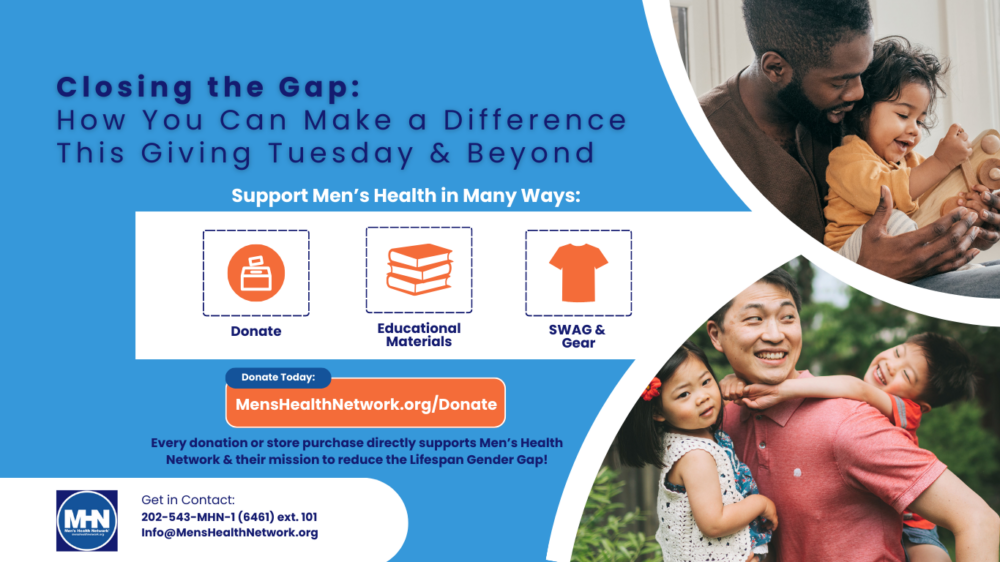As a young man, I often learned life lessons from my father. Perhaps none have been as lasting as the lesson he inadvertently taught me about health as his own health took a downward turn. While I was in middle school—a time when most boys are navigating puberty—my dad was busy prepping for heart valve surgery. With his life on the line and under doctor’s order, he and the rest of my family had to make brisk changes—dietary changes like less red meat—soon after the surgery he was accompanied by a cane; everyday tasks like bathing also required greater effort. Though he has largely recovered in the decade since, his experience has left a persistent impression on me as a young man about my own cardiovascular health.
It’s no secret that men are less engaged in their health; we’re less likely to go to the doctor than women, and more likely to die of the leading causes of death than women including cardiovascular disease. And data from the Kaiser Family Foundation shows the problem doesn’t start later in life—nonelderly men were over 21% more likely than nonelderly women to be uninsured. And few health issues outpace that of cardiovascular disease or heart disease as it’s commonly known.
Why Heart Disease Matters
The heart is one of the most important parts of the body that men have to keep healthy. According to the Centers for Disease Control and Prevention (CDC), the leading cause of death for males in the United States is heart disease. Heart disease encompasses a wide variety of medical problems that can affect the heart. These can include coronary heart disease, angina, heart attacks, high blood pressure, and strokes.
Specific men-centric heart risks include erectile dysfunction, low testosterone, and chronic stress. Men also have gender-specific tendencies to make mistakes maintaining their heart’s healthiness. These include skipping preventative care, assuming problems are in your head, thinking you’re too young for any serious problems, self-medicating, and adopting a fatalistic approach to genetic health problems.
Some signs you or someone you know may be suffering from heart problems include chest pains, shortness of breath, or fainting. There are also certain factors – genetically predisposed or otherwise – that can increase your risk of developing heart problems during your life. These include being 45 or older, having an immediate family member that had heart conditions before 55, getting little or no exercise, being overweight, eating salty foods, smoking, having poor hygiene, having high blood pressure and/or cholesterol and having diabetes.
In order to prevent or reduce your risk of developing any heart diseases, you should consider eating more fruits and vegetables, avoiding trans fats, exercising regularly, and having regular checkups with your doctor. Such preventative measures are also good habits to possess regardless, if you don’t already have them.
As someone in the age 18-29 demographic, I am acutely aware of how important it is for someone my age to maintain their health. Many 18-29-year-olds feel the same – at least 60% have visited the doctor at least once within one year. But this still leaves 40% of all these young adults not visiting the doctor annually, and this places them at greater risk of developing health problems as a result of their negligence. Not to mention that more health problems could be developed later into their life as a result of the poor choices they make today. Now that you are more aware of the causes, signs and symptoms of heart disease, you are now better prepared to handle any heart problems that may come your way. Remember – a healthy heart is a happy heart!



